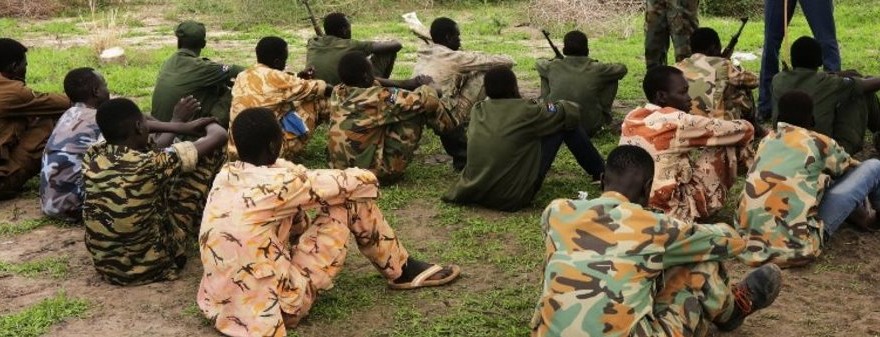Screening and training of armed forces in three cantonment sites of Eastern Equatoria region will take place next week if logistical support is provided, a top military official said on Wednesday.
Brigadier General Cornelius Abele, the area team leader for the Joint Military Ceasefire Commission (JMCC) revealed that arrangements are underway to kick off the training of forces in the region.
Abele was addressing stakeholders at a one-day event organized by South Sudan Law Society in partnership with the civil society network in Torit town.
The three sites are Aswa in Pageri, Irube in Torit and Loyoro in Kapoeta.
The team leader said assembling of military forces should have ended by July 30, but was pushed to next week due to logistical challenges.
“Those people are now moving to the cantonment sites according to the message. From July 30, they were supposed to be in the cantonment area, but the delay is because of food,” Abele said.
“In the coming week, everything should be out. JMCC’s Major General John Maluet will be here to support SSOA [South Sudan Opposition Alliance] and SSPDF [South Sudan People’s Defense Forces]. We are going to the field with doctors for screening,” he explained.
Abele said child soldiers and the elderly will not be part of the forces.
According to the military official, the forces would be screened and trained to cope up with time before the transitional government is formed in November.
The JMCC’s deputy administrator, Lt. Col. Dominic Odemi Maring said screening and training of forces will take one and a half month. He added that screening of the officers would be done according to ages.
“A private to corporal from18 to 45 can be nominated. From the rank of sergeant to regimental sergeant major, we have from 45-48 and then 48-52 from 2nd Lt to the rank of captain,” Maring said.
He added, “From major to colonel, it is from the age of 52-55 and from 55-56 for Brigadier General to Major General, so that is the limit for the military.”
On his part, the civil society network chairperson, Charles Okullo said the event was an opportunity for stakeholders to be briefed on the progress and challenges in the implementation of the security arrangements.
He said they are trying to identify opportunities for collaboration between the civilian population and the army so as to influence the implementation of security arrangements at all levels.
“We as the civil society in Torit and Kapoeta States are very happy because we received information that we are now moving forward. We had a meeting with the JMCC based on collaboration. What is it that we can do so that we work together with them to make sure the revitalized peace agreement is pushed forward?” he asked.
Under the revitalized peace agreement, the parties are required to assemble their forces in cantonment sites to enable registration of personnel, weapons, screening, reorganization and demobilisation.
The deal says all forces in cantonment sites shall receive non-military logistical supplies such as food, shelter and access to medical care.




